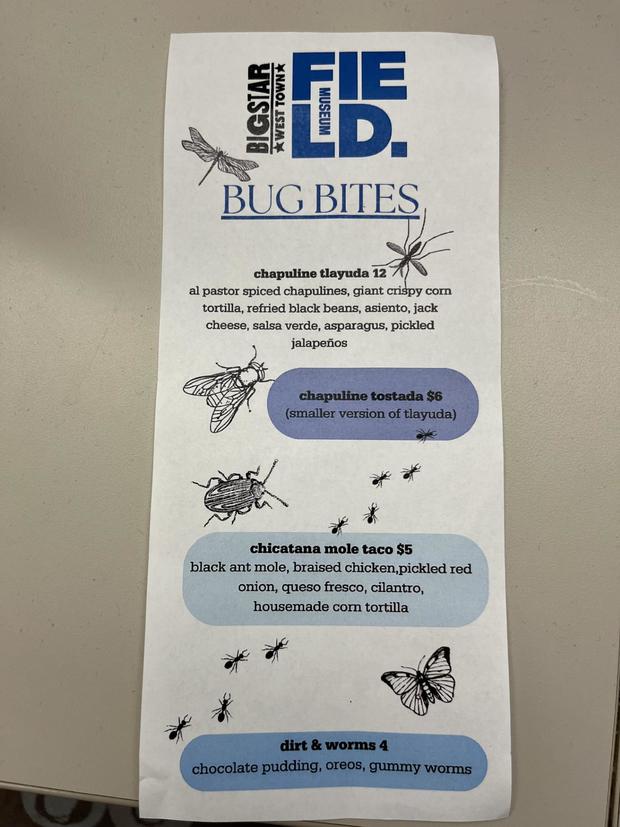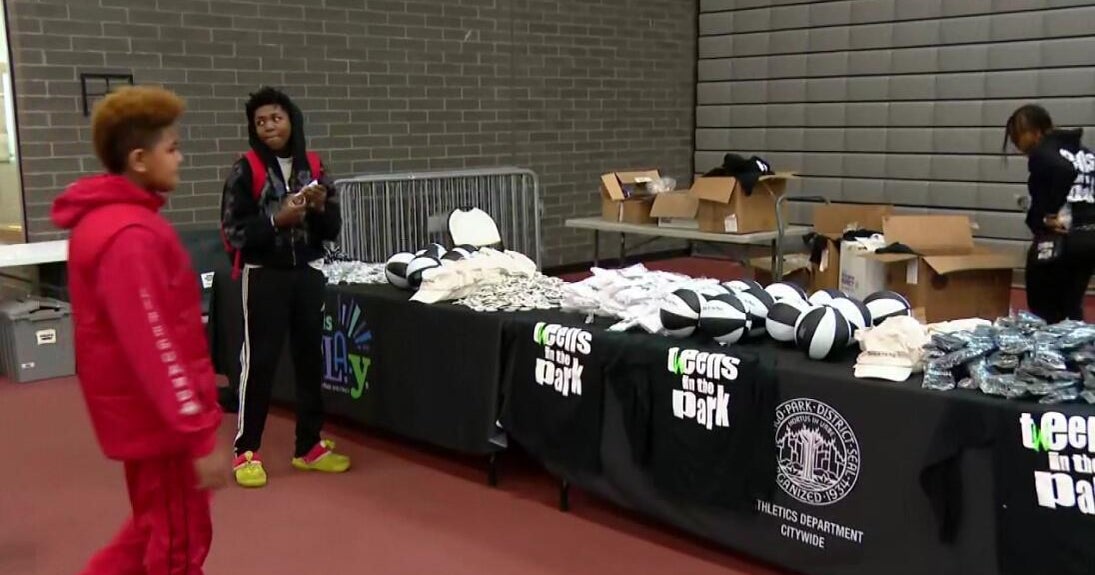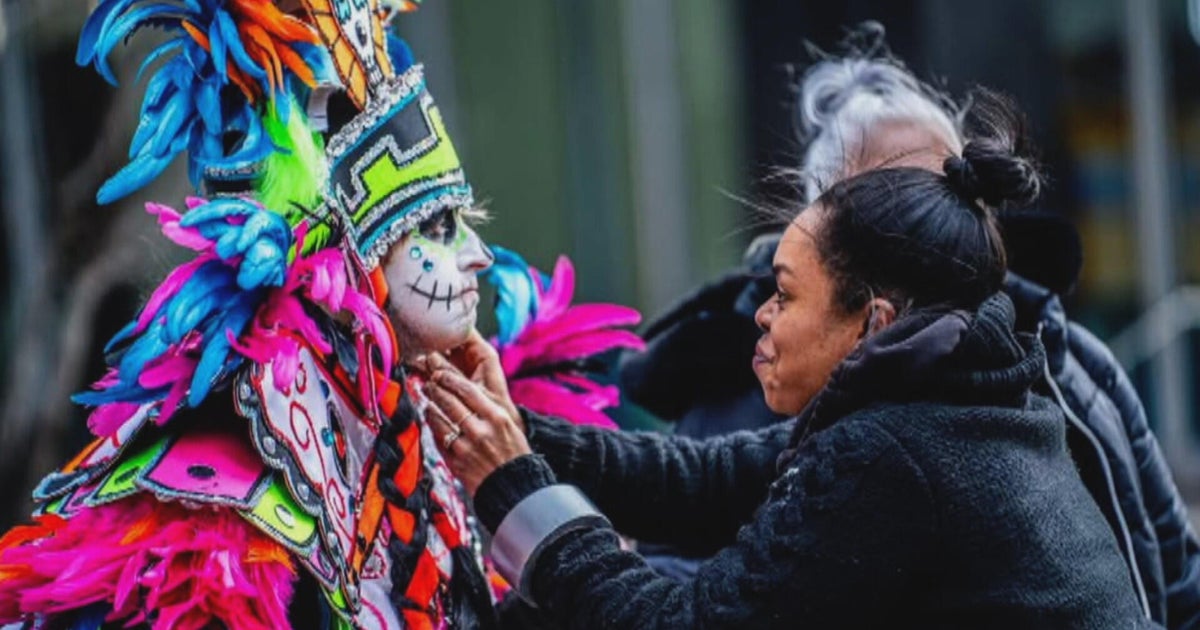Chicago's Field Museum, Big Star host dinner with insect-based dishes, cicada-related discussions
CHICAGO (CBS) -- The Field Museum of Natural History hosted a dinner Tuesday night with bugs on the menu and some entomological education for visitors.
The "Bug Bites" event was inspired by the 17-year periodical cicada emergence across the Chicago area this spring and summer.
As has been noted numerous times, cicadas are edible, and there are numerous recipes out there for enjoying them. Members of CBS 2's past and present on-air talent even ate cicadas on live television both 17 and 34 years ago.
But nobody ate cicadas at the event Tuesday night at Big Star West Town, 551 N. Ogden Ave., at which Field Museum scientists joined adventurous eaters.
The museum said restaurant-grade Food and Drug Administration-approved cicadas cannot be sourced since periodical cicadas only show up every 13 or 17 years. Besides that, the Field Museum said cicadas were the guests of honor at the event, and eating them would not be polite at all.
Instead, Big Star culinary operations director Chris Miller prepared traditional Oaxacan dishes that feature insects as components.
These included chapuline tlayudas and tostadas—made with al pastor-spiced chapulines or grasshoppers on a giant crispy corn tortilla—refried black beans, asiento, jack cheese, salsa verde, asparagus, and pickled jalapeños. Also available was a chicatana mole taco with black ant mole and braised chicken.
The grasshoppers and ants used in the dishes were produced for human consumption – hygienically raised, dried, and rehydrated before being placed in lemon juice, chiles, and other seasonings, explained Jim Louderman, a collections assistant in the Insect Division at the Field Museum.
"In reality, when you eat the crickets, all you taste is the spices and seasonings," Louderman said.
Briana Bergeron tried one of the chapuline dishes.
"It was crispier than I expected," she said. "I was thinking it was going to be kind of soggy."
Bergeron added that she would be willing to eat the insects as a snack with lime and chiles. She was excited to learn about cicadas and their culinary uses.
"I feel like with everything that's happening with the cicadas, I was just like, wait, it would be so interesting to see how people are cooking these, and I want to know more about it," she said. "Plus, I feel like people need to eat bugs more, because they're there, and they're tasty!"
While cicadas were not available to eat at the event, the Bug Bites dinner did provide an opportunity to talk about cicadas with the Field Museum scientists in attendance. Some live and pinned cicadas also came along—including a rare cicada with blue eyes rather than red, a sample of which was found in Lisle and Wheaton this season and donated to the museum.
The museum also said it would bring cicadas infected with the sexually-transmitted "zombie" fungus – which causes the backside of their abdomens open up and erupt in a chalky, white plug that takes over the insects' bodies and makes their genitals fall off. However, the zombie cicadas are driven to keep trying to mate anyway—with males producing wing-flick signals like females and becoming attractive to both male and female cicadas.
Other creatures besides cicadas were also displayed—in live and preserved specimen form. These included several varieties of beetles, such as blue death-feigning beetles, described by Louderman as "little blue beetles from Arizona that play that they're dead when something tries to eat them," and Goliath beetles, which are among the world's largest insects.
Some arachnids were also at the event—including a scorpion and a couple of tarantulas, one of which Louderman briefly welcomed to the top of his head.
"It's trying to show people that insects are really pretty nice and docile and gentle, and don't really be scared of them – and also that they're really important to humans," Louderman said.
Louderman also encouraged everyone to make the most of their time with the 17-year cicadas, which will not return until 2041.
"Yeah, they're a little bit loud, but you can go out, and you can pick them up, you can hold them hold them. They will not bite you. They have no venom. They're beneficial to trees. They're beneficial to plants. They're beneficial to a lot of animals, including dogs and cats," Louderman said. "So just have fun with it."











